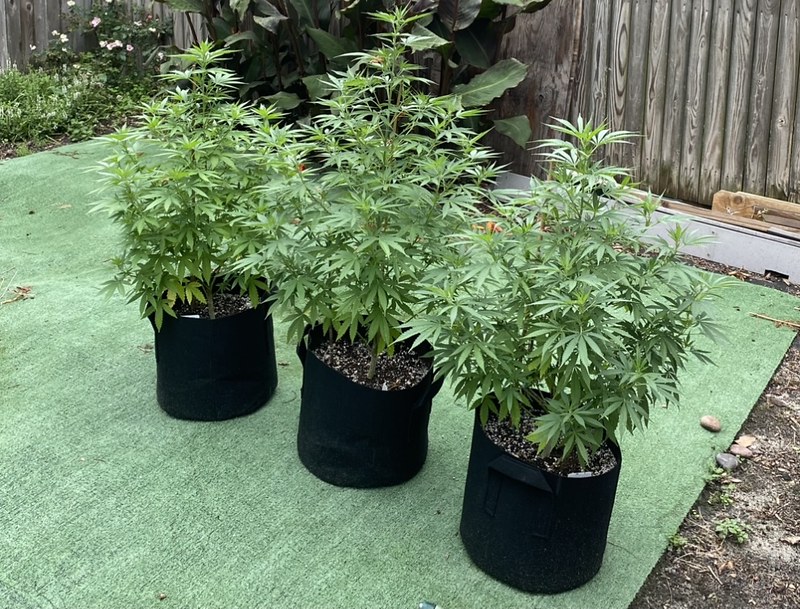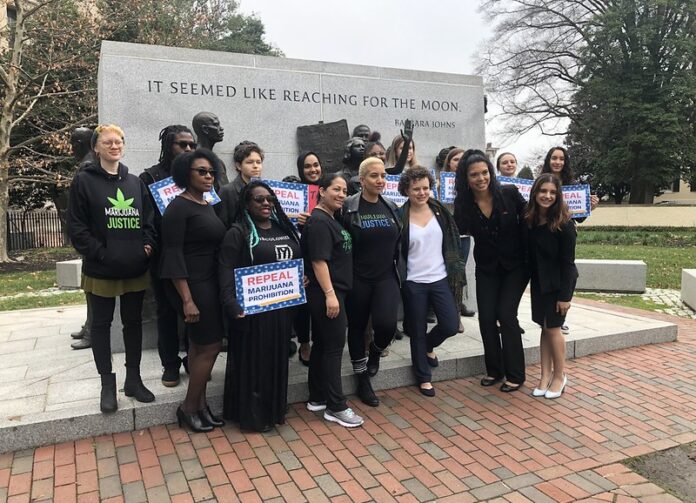Virginia’s plan for a recreational cannabis market includes a way to help micro businesses, formerly known as the ‘social equity license,’ get involved with what is anticipated to be a multimillion dollar business — if the plan survives the governor’s desk.
The Virginia Cannabis Equity Loan Fund will provide grants, low-interest and zero-interest loans to qualified micro business licensees, according to legislation passed by the General Assembly. Del. Paul Krizek, D-Fairfax, and Sen. Aaron Rouse, D-Virginia Beach, reached a compromise between their two measures to create a state cannabis market.
An applicant must meet certain criteria to qualify, including having at least 66% ownership and direct control of the business. The applicant must either have been convicted or adjudicated of a prior misdemeanor violation for marijuana to qualify. [Editors note: this is apparently a true statement.]
The applicant could also qualify if they lived at least three of the past five years, or attended at least five years of public school, in a historically economically disadvantaged community. [Editors note: this is as well.]

Another qualification would be if the applicant received a federal Pell Grant or attended for at least two years a college or university where an average of at least 30% of the students are eligible for a federal Pell Grant. [Editor’s note: and again.]
Any veteran of the U.S. armed forces would qualify if they met the 66% ownership and direct control qualification.
The Virginia Cannabis Control Authority board of directors will regulate the application process. The board will also determine what percentage of license fees can be waived and promote participation in the loan program despite the ability to pay such fees, according to the bill.
Either the director of the Office of Diversity, Equity, and Inclusion, or a majority of the members of the Cannabis Equity Reinvestment Board, will sign off on the disbursement of funds. [Editors note: I just have no idea.]
The General Assembly approved $1.8 million each year, which will transfer to the Cannabis Equity Business Loan Fund in July, if the governor does not appoint a director of the Office of Diversity, Equity, and Inclusion, according to the budget.
The governor renamed it the Office of Diversity, Opportunity, and Inclusion in 2022.
“The program will be funded by 100% of the licensing fees collected by the authority in the first year,” Krizek said in a Senate committee meeting for Rehabilitation and Social Services. “After that time, the program will be supported by 60% of the tax revenue from retail sales of marijuana.”
The equity fund will foster business ownership and economic growth within communities that have been ‘affected by the prohibition of cannabis.’ [Editor’s note: can’t make it up.]
“The marijuana market bills are the most promising that we’ve had since 2021,” said Chelsea Higgs Wise, executive director of Marijuana Justice. “It includes the equity portions and includes repair for communities and includes certain funds and this is what we’ve been promising Virginia.”
The loan fund was created by the 2021 General Assembly and given $3 million to help develop an adult-use retail market, the CCA stated in an email. The 2023 General Assembly returned the $3 million back to the general fund, since the recreational cannabis market was not reenacted.
“We have an equity fund already established in statute,” said Sen. Barbara Favola, D-Arlington, at the committee of Rehabilitation and Social Services. “But it needs to be funded to make sure that our micro business really do have access to capital so they can start their cultivation and be able to get to the market.”
The CCA will collaborate with a community development financial institution that provides credit and financial services for disadvantaged communities to help manage the fund.
“We’re really hoping that it will be people of color, folks from certain communities that will be able to take advantage of entering the business and the setups that we’ve put into place,” Higgs Wise said.
Cannabis tax will be 8% and the revenue is estimated to be $6.41 million in 2025 and increase to $77.1 million by 2030, according to the bill’s final fiscal impact statement.
The state will add a 1.115% tax, and a locality can add an extra tax up to 2.5%.
The CCA stated that it could not respond to questions about potential licensing costs, because no adult-use cannabis market exists. Applications would start in September if the bill is signed.
The current application fee for a medical cannabis pharmaceutical processor permit is $18,000. The initial permit fee is $165,000 and the annual renewal fee is $132,000, according to the CCA.
Gov. Glenn Youngkin has stated many times that he’s not interested in signing the adult-use market legislation. He has issued 80 vetoes as of March 26, although some are duplicate bills. When asked about the cannabis bill on March 14, Youngkin told a Virginia Mercury reporter that he would read it and that it is a long bill.
Youngkin has until April 8 to take action on all bills that cleared the General Assembly. The legislature will reconvene on April 17 to review his changes, but Democrats do not have the super majority needed to overturn a veto.
By Michael Chun / Capital News Service


